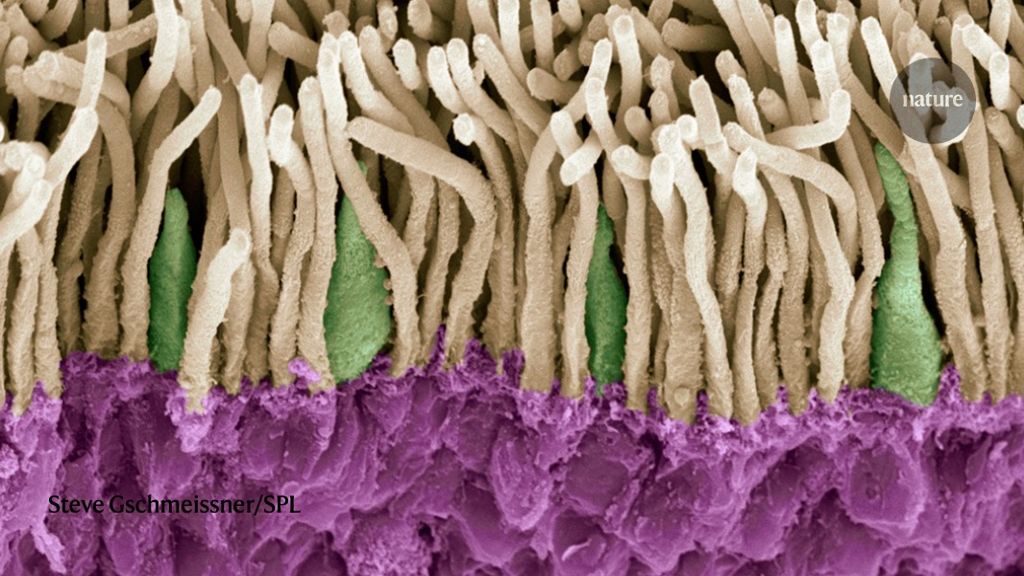The retina’s light-gathering rod and cone cells (beige and green, respectively; artificially coloured) die in people with the inherited disorder retinitis pigmentosa. Credit: Steve Gschmeissner/SPL
Gene therapy
Men with an aggressive genetic disease that leads to blindness regained some of their lost vision after receiving doses of a corrective gene.
The X-linked form of a genetic disorder called retinitis pigmentosa affects young men with a defective gene on their single X chromosome. As their eye cells gradually die, affected men experience night blindness and tunnel vision, and many are permanently blind by their thirties.
To test the safety of a gene therapy for the disease, Robert MacLaren at the University of Oxford, UK, and his colleagues recruited 18 men whose vision had been damaged by the condition. The men received varying doses of a virus carrying a replacement for the defective gene.
Participants experienced no serious side effects, although some of the men who received the highest doses of the virus developed mild retinal inflammation. Peripheral vision improved in six men; this benefit lasted throughout the six-month trial. One man’s retina thickened, which the authors say might be evidence that light-receiving structures were re-growing.

